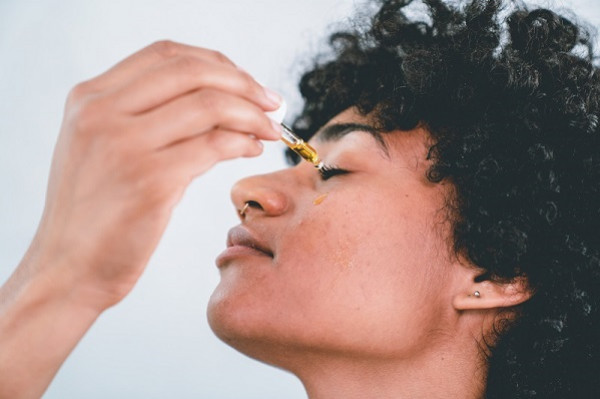
Les solutions naturelles contre l’eczéma
15/03/2021
L’eczéma est une affection de la peau non contagieuse qui touche une grande partie de la population. Démangeaisons, sécheresses, rougeurs, inflammations… Les réactions cutanées sont nombreuses et elles deviennent vite insupportables. Heureusement, la nature regorge de ressources pour soulager nos différents maux du corps !
Il reste toutefois préférable d’obtenir un avis médical pour un traitement et le suivi de l'eczéma.
COMPRENDRE UNE PEAU ATTEINTE D'ECZÉMA
En France, l’eczéma touche environ 2,5 millions de personnes et représente 30 % des motifs de consultation dermatologique. Cette inflammation de la peau se manifeste de manière chronique ou par poussées, et se traduit par des rougeurs, des squames, des petites vésicules, une peau très sèche, des inflammations et des démangeaisons. La barrière cutanée de la peau est très affaiblie et fragile. L’eczéma est un cercle vicieux pour les personnes qui en souffrent : ça démange, on se gratte, les symptômes s'amplifient, on se gratte davantage et il devient difficile d’en venir à bout. À terme, la peau s’épaissit, elle devient plus vulnérable aux infections et la pigmentation peut légèrement se modifier. L’eczéma peut apparaître dès le plus jeune âge, même chez les nourrissons. Il touche d’ailleurs plus souvent les enfants que les adultes. L’eczéma peut se manifester sur différentes parties du corps telles que le visage, les mains, les coudes et les genoux.
Voici les 2 formes les plus courantes de l’eczéma :
- L’eczéma atopique ou dermatite atopique : c’est la forme la plus répandue et qui touche principalement les enfants. Cet eczéma est génétique et survient avec des crises chroniques. À l’adolescence, il disparaît, mais il est possible que la maladie perdure à l’âge adulte. La dermatite atopique touche davantage les personnes vivant dans des zones urbanisées.
- L’eczéma de contact ou dermatite de contact : ce type d’eczéma se déclenche suite au contact d’un élément irritant ou allergène avec la peau. La dermatite de contact peut toucher toutes les personnes, qu’importe l’âge.
La prédisposition génétique est l'une des principales origines de l’eczéma. Mais cette affection de la peau peut se déclencher suite à d’autres facteurs comme le stress, l’anxiété, des allergènes présents dans les textiles ou produits, une allergie aux animaux, à la poussière, au pollen, une hygiène trop importante (utilisation répétée de l’eau). L'eczéma est également souvent lié à d’autres maladies comme la rhinite allergique, l’asthme et des allergies alimentaires.
SOULAGER LA PEAU AVEC DES REMÈDES NATURELS
L’alimentation
Les aliments anti-inflammatoires et riches en antioxydants sont les bienvenus dans notre assiette ! Ils permettent de soulager les démangeaisons et les préviennent également. Dans notre liste de courses anti-eczéma, on y retrouve : les fruits rouges, la pomme, la betterave, l’artichaut, l’asperge, le brocoli, la carotte, le poivron, les légumineuses comme les lentilles, les poissons riches en omégas 3 (saumon, hareng, sardine), le chocolat noir, le kéfir, le thé Oolong, les noix et les fruits secs. On diminue la consommation des aliments trop transformés et industriels, du gluten, des corps gras (beurre cuit, crème fraîche cuite, margarine). On réduit le sucre et l’apport en lactose. Enfin, on adopte une bonne hydratation de notre corps en buvant 1,5 L d’eau par jour.
L’hydratation de la peau avec les bons produits
JE CRAQUE POUR LA CRÈME MUESLI
---------------------------------------
Une peau atteinte d’eczéma a besoin qu’on la chouchoute un maximum avec des soins hydratants mais surtout nourrissants. L’application d’une crème ou d’une huile végétale permet de protéger la peau en renforçant son film hydrolipidique, qui est très abîmé par l'eczéma, voire parfois inexistant. Il est important d’hydrater sa peau le soir et le matin (idéalement après la douche), avec une couche épaisse de matière nourrissante. Une bonne hydratation de la peau permet également de diminuer la fréquence et l’intensité des poussées inflammatoires.
Le choix d’une crème hydratante
L’utilisation de crèmes hydratantes naturelles et certifiées bio est fortement recommandée afin d’éviter les ingrédients allergènes et chimiques, qui risquent d'abîmer encore plus la peau. Chez Akane, notre cold cream bio, Crème Muesli Nourrissante, se compose de 8 huiles végétales sélectionnées spécialement pour répondre à l’inconfort des peaux tiraillées par l’eczéma et la sécheresse. Apaisée et nourrie, votre peau retrouve petit à petit sa souplesse et sa douceur !
Le choix des huiles végétales
Les huiles végétales sont remplies de bienfaits pour prendre soin d’une peau eczémateuse. Ci-dessous, une liste des 10 huiles végétales que vous pouvez utiliser quotidiennement pour apaiser la peau, la nourrir, l’aider à cicatriser et prévenir les prochaines poussées inflammatoires de l’eczéma :
- huile d’amande douce (adoucissante, anti-inflammatoire, calmante)
-huile d’argan (cicatrisante, protectrice)
-beurre de karité (adoucissant, protecteur)
-huile de calendula (anti-inflammatoire, cicatrisante, régénérante)
-huile de calophylle (apaisante, régénérante)
-huile de caméline (apaisante, revitalisante)
-huile de coco (nourrissante, apaisante, antibactérienne)
-huile de germe de blé (nourrissante, protectrice)
-huile d’olive (anti-inflammatoire, protectrice)
-huile de rose musquée (nourrissante, cicatrisante, protectrice)
La magie de l’aloe vera
La gelée d’aloe vera concentre tous les bienfaits qu’une peau atteinte d’eczéma a besoin : hydratante, cicatrisante, apaisante, régénérante. Cette plante miraculeuse prévient les démangeaisons et apaise les inflammations. Chez Akane, notre gel aloe vera bio se compose de 95 % de pur jus d’aloe vera afin de profiter pleinement de ses vertus. Concernant son utilisation, appliquez l’aloe vera localement sur la zone touchée, renouvelez l’application plusieurs fois par jour.
Attention aux vêtements
On évite les vêtements trop serrés, les matières synthétiques ou encore la laine. Bien que ce soit un textile naturel, la laine est beaucoup trop irritante pour les peaux sensibles. Les matières à privilégier sont le coton, la soie ou encore le lin. Pour protéger notre peau et limiter les réactions, l’idéal est de porter un t-shirt sous son pull. Concernant le lavage des vêtements, il est préférable de choisir une lessive hypoallergénique et de limiter l'utilisation des assouplissants.
Un nettoyage doux du corps et du visage
J'ACHÈTE LA GELÉE FRAÎCHE NETTOYANTE
---------------------------------------
Pour le nettoyage du corps ou du visage, le mot d’ordre est d’utiliser de l’eau tiède et non chaude. L’eau chaude provoque un assèchement de la peau et des démangeaisons supplémentaires. Concernant le choix du savon, on bannit les gels-douche de grande surface. On choisit un gel-douche surgras ou un pain de savon saponifié à froid. Ces produits lavants sont beaucoup plus doux pour la peau. Les savons saponifiés ont pour avantage d’être entièrement biodégradables et leur fabrication est plus respectueuse de l’environnement.
Pour le visage, même règle d’or, on privilégie des produits naturels en accord avec notre peau afin d’éviter les composants allergènes. Chez Akane, notre nettoyant visage bio à l’aloe vera nettoie votre peau tout en douceur sans l’assécher. Ce nettoyant est idéalement conçu pour répondre aux besoins des peaux très sensibles et réactives.
Après le nettoyage de son visage, on apaise la peau en vaporisant un peu d’eau florale apaisante comme l’eau de rose , de lavande ou de camomille.
Enfin pour le corps comme le visage, lors du séchage de la peau, on ne la frotte pas vigoureusement, on la sèche délicatement avec une serviette en coton en tamponnant.
Soigner le corps par l’esprit
Dans certains cas, l’apparition d’eczéma est liée à une période de stress et un état d’anxiété. La pratique du yoga, de la méditation, des exercices de relaxation et respiration permettent d’évacuer les tensions, de relâcher le stress, de se recentrer sur soi et son bien-être. Ces activités ont des effets bénéfiques pour soulager le corps atteint d’eczéma en diminuant les démangeaisons et en prévenant l’apparition de nouvelles crises d'inflammation.
Les huiles essentielles
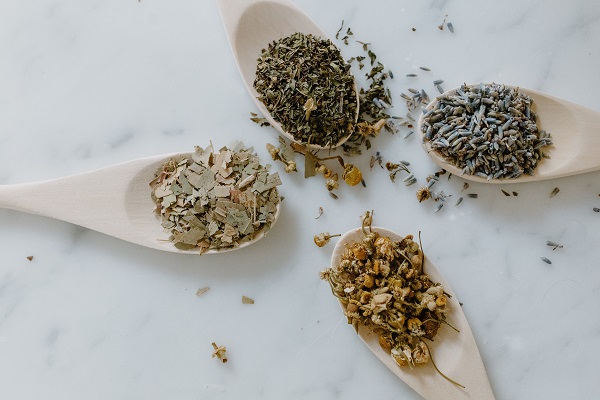
Tout comme les huiles végétales, les huiles essentielles sont, elles aussi, très bénéfiques pour soulager l’eczéma. L’utilisation d’huile essentielle permet d’atténuer et combattre les symptômes de l’eczéma, elle permet également à la peau de mieux appréhender les prochaines poussées afin qu’elle se défende mieux. Voici la liste des huiles essentielles adaptées pour l’eczéma :
- huile essentielle de lavande (cicatrisante, anti-inflammatoire, apaisante)
- huile essentielle de camomille romaine (apaisante adoucissante anti-inflammatoire)
- huile essentielle de palmarosa (régénérante, antibactérienne, cicatrisante)
- huile essentielle de tea tree (antibactérienne, anti-inflammatoire, apaisante)
- huile essentielle de geranium rosat (apaisante, anti-inflammatoire, anti-bactérienne)
Attention toutefois à les utiliser avec précaution car ces huiles sont puissantes et un mauvais usage pourrait amplifier les symptômes. Afin de profiter de leurs bienfaits, mélanger quelques gouttes d’huile essentielle avec votre crème visage ou avec une huile végétale comme l’huile d’amande douce. Pour ce qui est des proportions, prévoyez 2 gouttes d’huile essentielle pour une bonne cuillère à soupe d’huile végétale.
Lire aussi...
|
Vous souhaitez des conseils personnalisés pour votre routine beauté ?
|
|

|
Article rédigé par : Aline Foulet Fondatrice de la marque cosmétique Bio Akane Skincare Blog Akane Paris, Montmartre
|

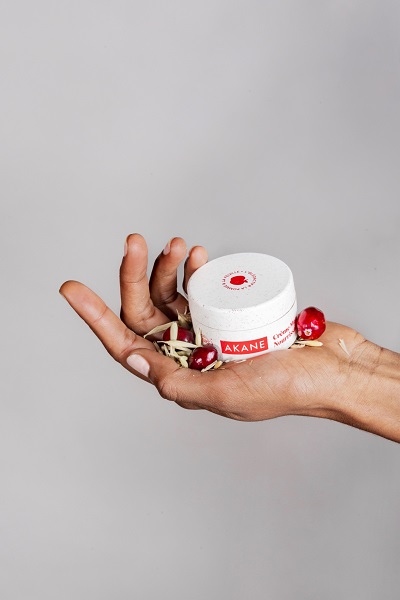
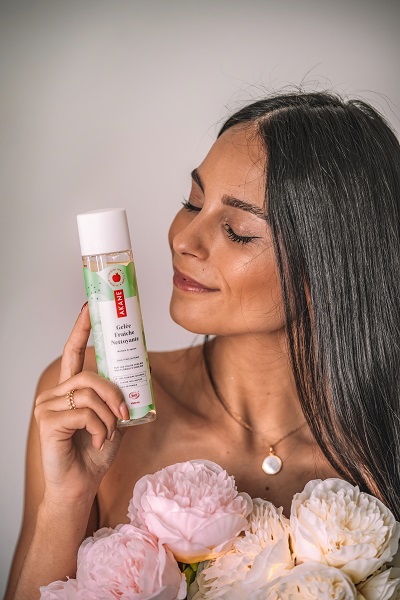
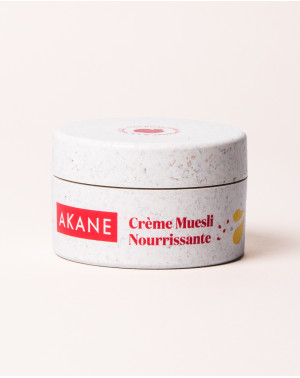

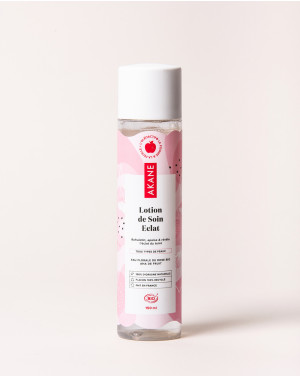

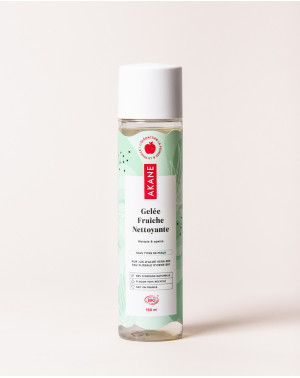
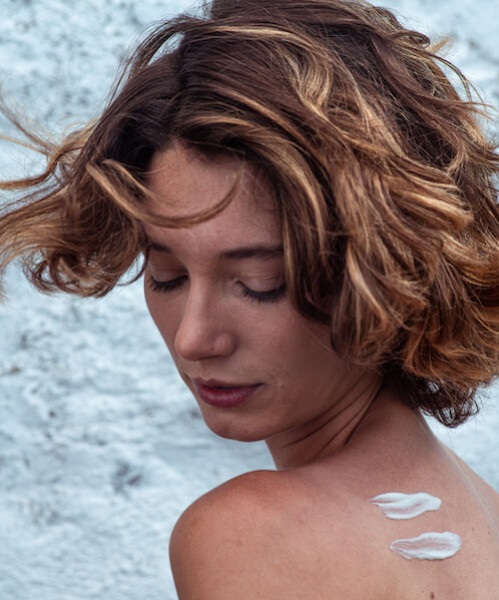


.JPG)